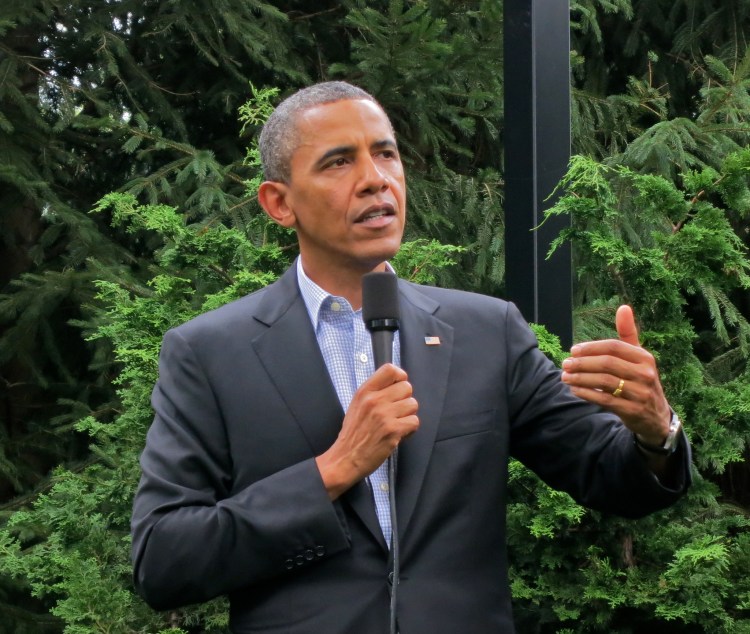The White House cybersecurity summit, something that should be a matter of grave importance, was mostly for show.
Today, members of the tech industry met with President Barack Obama at Stanford University in the San Francisco Bay Area to discuss the perils of poor cybersecurity infrastructure and the need to build stronger system for battling hackers. But while it saw some important suggestions on how to improve security efforts through data sharing, it was all just talk, as many of these efforts can’t take shape without Congressional action.
During his address at the summit, Obama ground down on the need to share information on threats between the public and private sector. While the private sector controls much of the digital infrastructure in the U.S., it doesn’t necessarily have all of the security solutions.
“So much of our networks and critical infrastructure are in the private sector, but the private sector can’t do it alone,” the president said.
To drive the point home, he signed an executive order to this effect, in the hopes of inspiring collaboration between companies and government security agencies.
But with many companies still concerned over National Security Agency practice of collecting mass citizen data, the call may have fallen on deaf ears.
As with privacy concerns continue to consume the American public, tech companies need to show they have consumers best interest at heart. Which can be difficult, when they repeatedly find ways to inappropriately handle consumer data. Just last week, privacy advocates took Samsung to task for a clause in its privacy policy that told consumers not to say anything personal in front its voice responsive television — or else risk having that information shared with third parties. With plenty of their own fires to put out, tech firms hardly need the NSA’s data collection practices complicating matters.
In order to separate themselves from the federal government and its privacy problems, many major tech CEOs, including Facebook’s Mark Zuckerberg, Yahoo’s Marissa Mayer, and Google’s Larry Page, decided not to attend the White House summit.
Two speakers at today’s event, both from the private sector, made ovations about the ills of inappropriate data collection and failed privacy efforts. Apple CEO Tim Cook gave an ardent speech about the importance of personal privacy being respected and the duty of those who play gatekeeper to consumer data to keep it safe.
“If those of us in positions of responsibility fail to do everything to protect the right of privacy, we risk something far more valuable than money. We risk our way of life,” he said.
In a panel discussion Nuala O’Connor, the president and CEO of the Center for Democracy and Technology, spoke of a need for companies to recognize a concept she called “habeas data” or “my data, myself,” the notion that we are our data and thus it can’t belong to anyone else but ourselves.
In acknowledgement of these concerns, Obama did ultimately address privacy concerns in his speech.
“I have to tell you that grappling with how the government protects the american people from adverse events, while at the same time making sure that the government isn’t abusing its capabilities, is hard,” he said.
While the president’s remark may not have meant much to a community that feels pressure to both comply with legal government requests for data and to keep consumer data private, it doesn’t mean it wasn’t true. Much of the power to change the realities of government surveillance is in the hands of Congress — an entity that has yet to approve meaningful legislation around cybersecurity or data privacy.
Ultimately, the event served as a publicity stunt for the Obama administration to put pressure on Congress to vote on bills on the table, like the Cybersecurity Information Sharing Act of 2014, which received mentioned more than once at the summit.
It also served as a reminder to the private sector that in order to get cybersecurity under control, they’ll to take action themselves.
Already some companies have come together to create information sharing alliances, like the Cyber Threat Alliance. But they will have to involve more companies, especially small businesses, in order to prevent future cyber security disasters like the ones we saw in 2014.


